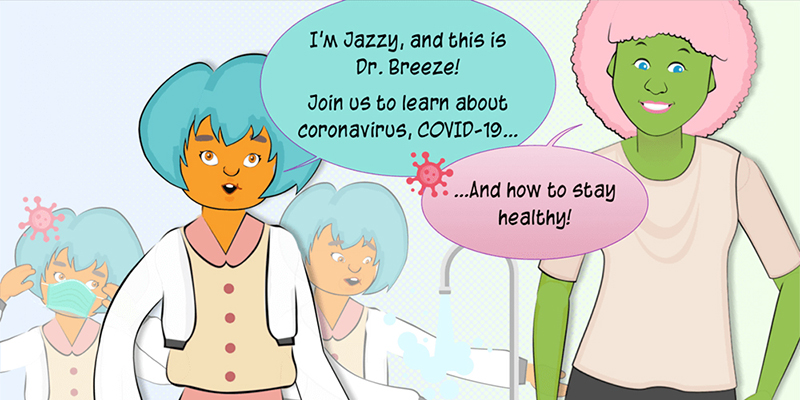

Miami University's Center for Chemistry Education helps create Coronavirus Learning Companion
The resource for all ages includes stories and activities
By Kristal Humphrey, university news and communications
Miami University’s Center for Chemistry Education was part of a collaboration that created the Coronavirus Learning Companion.
The goal of the web-based resource, funded by the National Institutes of Health (NIH), is to help community members better understand the purpose and science behind the COVID-19 public health recommendations.
“Being asked to change our lives in certain ways to reduce the spread of this coronavirus is challenging for everyone,” said Susan Hershberger, director of the Center for Chemistry Education in the department of chemistry and biochemistry.
“Ideally, understanding a bit more about ‘why’ helps us all continue to wash hands with soap frequently, social distance and wear masks,” she said. “Including hands-on activities in this resource adds some fun and brings the science to life.”
The resource was developed by the We Engage 4 Health Project (WE4H), which is an academic-community partnership between Miami’s Center for Chemistry Education, Cincinnati Children’s Hospital Medical Center, the University of Cincinnati and Seven Hills Neighborhood Houses. WE4H is supported by the NIH’s Science Education Partnership Award Program.
The learning companion is for all ages and features comic-based stories and hands-on activities to try at home. The stories can be viewed as a video, read online or downloaded and printed.
The stories and hands-on activities
In the first story, a teenage asthma patient named Jazzy has a telemedicine visit with Dr. Breeze, her asthma doctor, and asks questions about coronavirus, COVID-19 and her risks as an asthma patient. Dr. Breeze gives Jazzy fact-based information in an easy to understand and reassuring way.
Jazzy and her mother do an experiment in the second story to find out if soap really is an important part of washing coronavirus and other germs off our hands. Readers and viewers can try the activity themselves using instructions that follow the story.
In the last story, Jazzy and her mother explore shaving cream, which is just foamed up soap. They add food coloring to it and make colorful prints on paper. Once again, there are instructions for how to do the activity at home.
A long record of collaboration
The Center for Chemistry Education has a long record of collaborating with others to develop engaging chemistry and science educational materials for K-12 classrooms, undergraduate classes and informal settings.
Past projects include Fighting with Food, for which the center was awarded a Science Education Partnership Award from the NIH, and WISE Science, which was developed through a partnership with Miami’s College of Arts and Science and College of Education, Health and Society, as well as Middletown City Schools and Dayton Public Schools.
